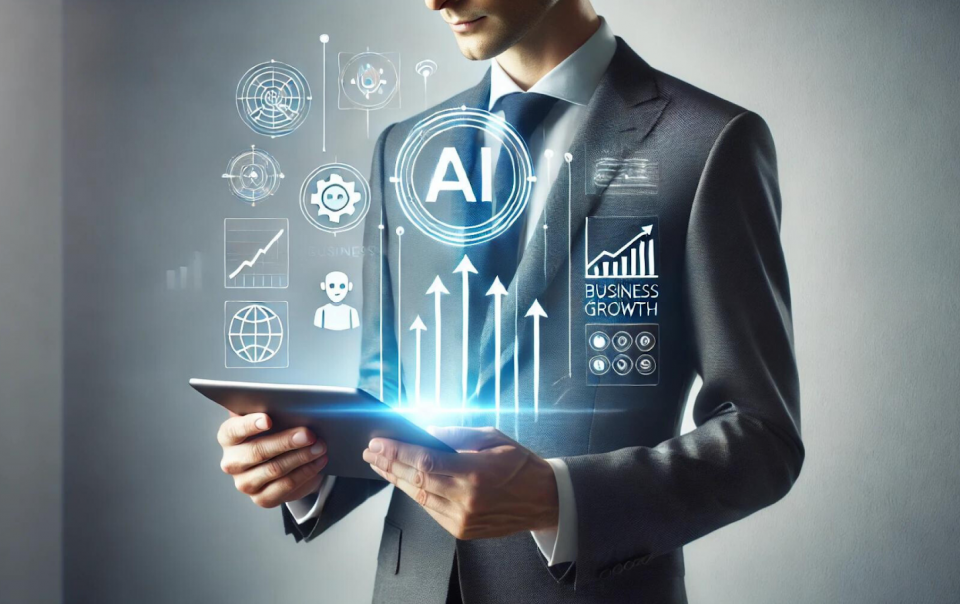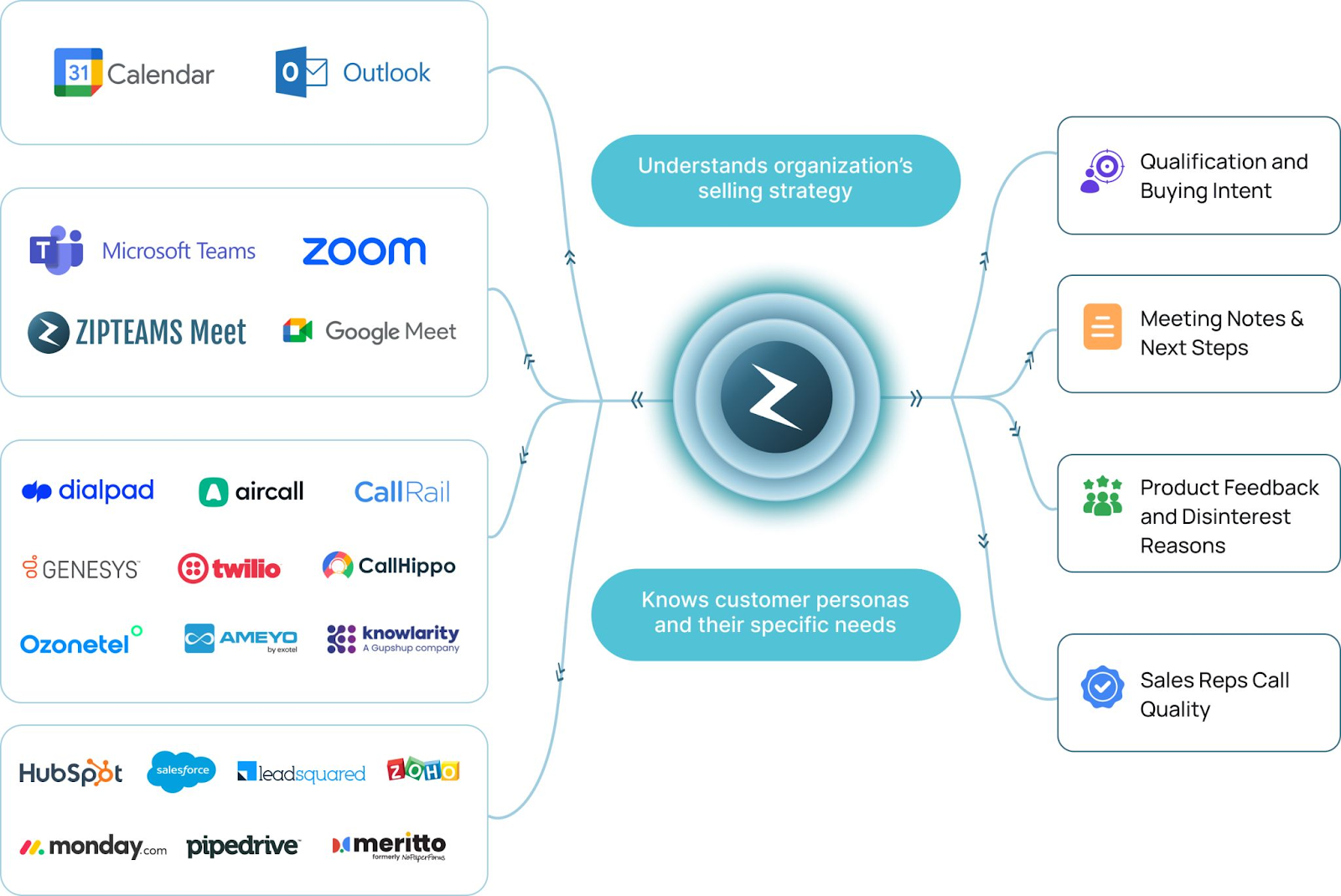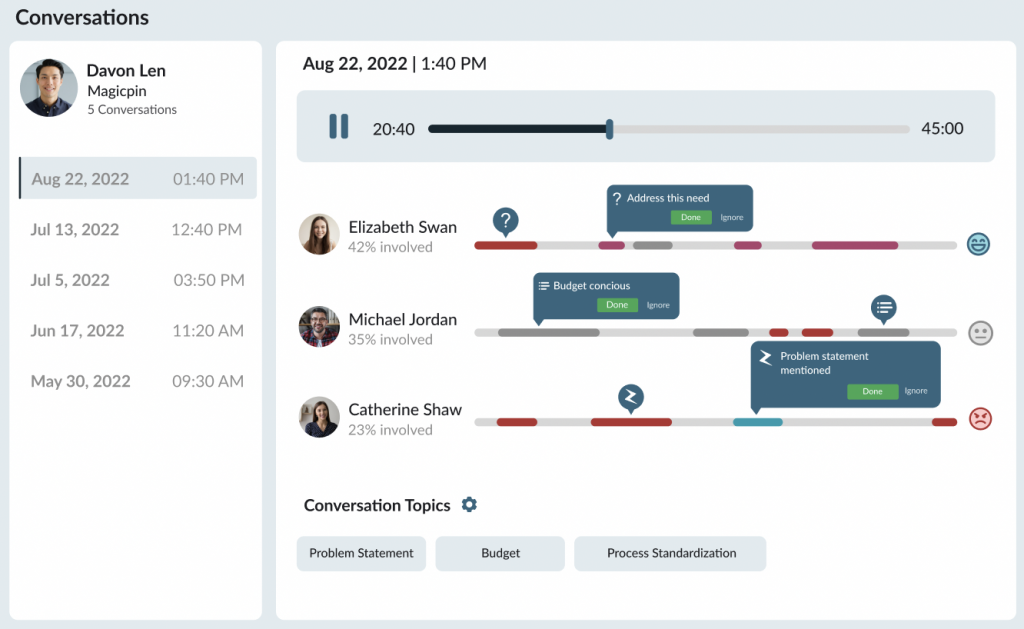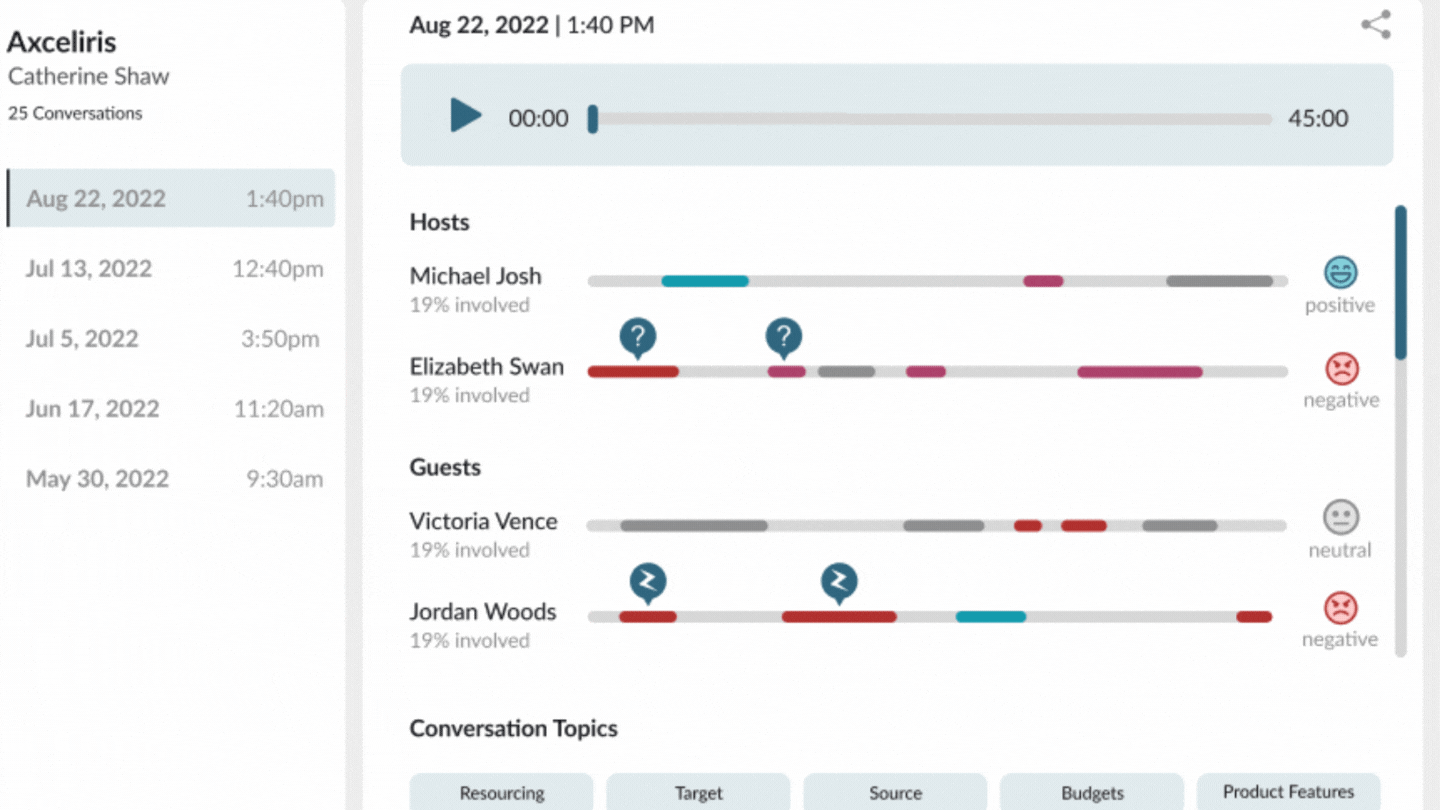
Artificial Intelligence (AI) is reshaping industries worldwide, and the B2B sector is no exception. In a landscape where customer expectations are rising and competition is fiercer than ever, traditional B2B CRM systems face significant challenges in keeping up with businesses’ dynamic needs.
To stay ahead, businesses need more than data storage and basic customer management—they need intelligent, predictive tools that evolve with their operations. This is where AI-powered CRMs step in. By automating routine tasks, providing real-time insights, and offering personalised experiences at scale, AI is becoming a critical driver of growth and efficiency.
In this blog, we explore why integrating AI into your B2B CRM strategy isn’t just an option—it’s necessary for businesses looking to unlock new performance and customer engagement levels.
What is CRM in B2B?
Customer Relationship Management (CRM) is an advanced tool for managing customer information within a business operation. In addition to storing and tracking customer relations, modern CRMs offer robust features like automation and data analysis for marketing, sales, and customer service teams.
Personal customer relationships are crucial for business growth in the B2B sector, and CRMs are key tools for efficiently managing customer interactions. B2B CRM provides consolidated profiles of leads and customers to tailor marketing and sales strategies. With personalised interactions, each department of a B2B venture can effectively optimise its dealings with customers and increase the conversion rates of potential leads.
Key Benefits of B2B CRM
B2B CRMs have numerous advantages and various use cases in a B2B venture. From the customer success team to the sales team, a CRM operates at multiple levels, optimising key benefits for business growth.
- Centralised Customer Data Management: CRM is a central hub that stores, tracks, and analyses customer information in one place. With centralised access, various departments will have greater visibility into customer trends and sales opportunities.
- Enhanced Customer Relationships: B2B ventures can use customer data to tailor communication and offers to individual needs. This personalisation boosts customer satisfaction, improves loyalty, and increases conversion rates.
- Improved Sales and Marketing Strategy: With centralised lead management of B2B CRM, sales teams can extract and prioritise leads and create personalised marketing campaigns.
Why Generative AI is Important in B2B CRM?
Generative AI is reshaping the boundaries of business strategies worldwide. From B2C to B2B, generative AI has opened up new avenues for business optimisation. With ongoing evolution, Generative AI is set to revolutionise B2B CRM and its traditional functions with more rapid and innovative tools.
Generative AI is scaling up the game of customer relations in traditional B2B CRM through hyper-personalisations and predictive analytics. AI can extract and analyse a vast amount of data faster than any conventional B2B CRM. With automated analysis, the unstructured data of traditional CRM turns to actionable insights, offering a better understanding of lead and customer profiles. Instead of manually categorizing qualified leads, generative AI automates the process by providing real-time insight into leads’ sentiments and pain points across multiple interaction platforms.
With generative AI, you can breathe new life into your conventional B2B CRM. Adopting AI tools for your CRM will ensure you stand at the forefront of the B2B sector with superpowers of generative AI.
Benefits of Generative AI Adoption in B2B CRM
Adoption of Generative AI is the technical imperative your B2B venture needs to stay competitive in the market. Harnessing the power of AI will shape the future scale of your B2B. Generative AI is not an addition to your traditional CRM. Rather, it is the core of any CRM operations and business strategy. Let’s explore in detail the benefits of generative AI to your business other than boosting CRM.
1. Intelligent Data Management
A traditional B2B CRM manages data with centralised access. With the increase in the B2B sector, ordinary data management is not enough. You need intelligent data management. With AI, the possible boundaries of data management have changed. A traditional CRM mostly depends on manual tasks to populate the system with data. AI tools automate this process by integrating with major funnels of the customer cycle.
-
- Automated Data: From a website visit to lead-activation-campaigns, AI automatically extracts data and delivers it to CRM in real-time. From the customer success team to the sales section, this process initiates the efficient streamlining of workflow across departments in the B2B sector. With its unprecedented ability to manage and extract data, AI will boost the conventional data management system of B2B CRM.
- Intelligent Lead Management: AI’s power is not limited to extracting huge amounts of data from multiple sources. Unlike the unstructured data repository of a CRM, AI can process and analyse the entire amount of data to provide actionable insights to various sections of the business. For example, an AI-powered tool can automatically score leads and prioritise them according to the business metric with real-time updates.
- Predictive Analytics: Instead of static data within a conventional CRM, Generative AI can analyse customer behaviour, patterns, and preferences and provide predictive insights to various sectors of your B2B. This will assist in creating tailored content for each customer. For instance, AI tools can deliver major pain points and sentiments of leads from ongoing sales calls and provide metrics for sales teams to tailor their engagements accordingly.
2. Hyper-personalisation:
Generating content like emails and landing pages is an optimal strategy to personalise customer engagements. With Generative AI, you can instantly create such personalized content. With updated data on each customer profile, AI tool can scale up the levels of personalisation with marketing, sales and customer service teams.
- Content Personalisation: With instant content creation and editing, Generative AI can easily level up your content game. AI tools allow you to tailor your content with data customer data insights like pain points, interests, and objections. Instant editing of the content eliminates language errors in your materials and reduces the gatekeeping process.
- Customised Virtual Assistant: With generative AI, the customer service team can toiler the answers and responses for each lead and customer. The 24/7 availability of these AI assistants ensures efficient follow-up and communication with the customer.
- Personalized Outreach: AI can provide insightful analysis and reports to improve customer outreach by understanding customers’ patterns and engagements.
3. Scalable Automation
Though a conventional B2B CRM automates mundane business tasks, certain tasks still require valuable time and energy from your employees. From scoring to follow-ups, Generative AI automates major stages in a business funnel. Adopting AI to the existing CRM thus ensures efficient workflow in your organisation.
- Streamlining Workflow: By automating major administrative tasks, Generative AI can offload the burden of mundane tasks from your employees and free them to focus on strategic tasks.
- Automated Lead Nurturing: In the case of leads, conventional CRM employs a time-consuming process for sales reps to find, score, and prioritise leads. This manual task inadvertently limited their time and energy in randomly chasing leads. By providing quick responses and contextual informations, Generative AI can automatically nurture the sales funnel leads and prioritise the highest value leads.
- Automated Follow-ups and Schedules: One key limitation of traditional CRM is the manual entries for follow-ups and schedules. Generative AI revolutionised the drawbacks of B2B CRM by automating follow-up entries and automatically delivering personalised communication through various channels.
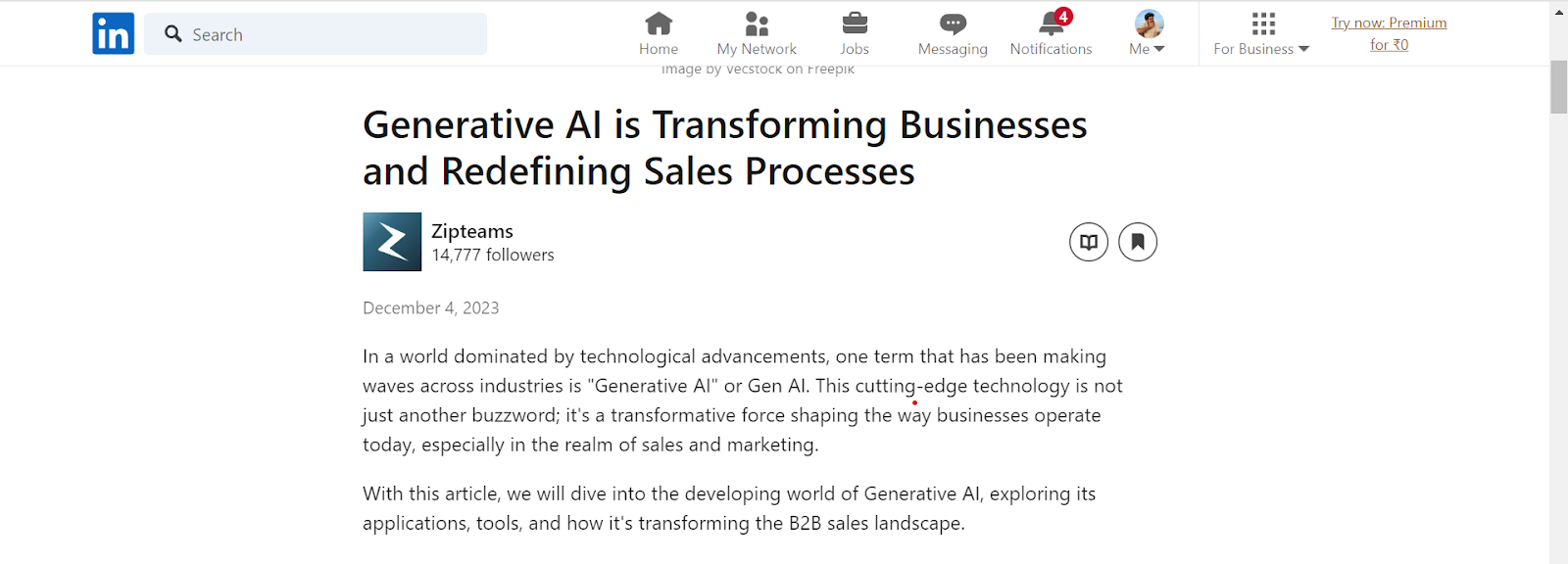
Also read, Generative AI is Transforming Businesses and Redefining Sales Processes
Challenges in Adopting Generative AI
1. Data Privacy Concerns
Data privacy is one of the most significant barriers to the adoption of generative AI in B2B CRMs. As AI models require vast amounts of customer data to function effectively, businesses must ensure compliance with stringent data privacy regulations. The use of customer data, especially for predictive analytics and personalised content generation, raises concerns over data breaches, unauthorised use, and maintaining customer trust
2. Integration with Existing Systems
Many companies struggle to integrate AI tools into their existing CRM platforms, especially if those systems are outdated. Legacy CRM systems often lack the flexibility to accommodate AI-powered features like automation, real-time analytics, or personalised recommendations. Upgrading or replacing these systems involves substantial costs, time, and operational disruption, which can deter businesses from pursuing AI adoption
3. Lack of Technical Expertise
Implementing generative AI requires the right tools and skilled personnel capable of handling AI algorithms, data management, and model training. Many B2B companies face a shortage of AI and data science talent, making it difficult to implement and scale AI-driven initiatives successfully. This challenge often leads to the underutilisation of AI tools or incomplete implementations.
4. High Initial Investment
While AI promises long-term efficiency and revenue growth, the initial costs of acquiring the necessary software, infrastructure, and skilled personnel can be prohibitively high. Small and mid-sized businesses, in particular, may find it difficult to justify the up-front expenses without clear, immediate returns on investment (ROI)
5. Ethical and Bias Concerns
Another challenge revolves around the ethical use of AI, particularly in ensuring that AI models do not perpetuate biases present in the training data. If not properly managed, AI systems can lead to biased customer targeting or decision-making, which can harm a company’s reputation and customer relationships. Addressing these ethical concerns requires continuous monitoring and adjusting of AI models.
These challenges need careful consideration as businesses adopt AI in their CRM strategies, balancing the potential for growth with the risks involved.
Best Practices for Implementing Generative AI in B2B CRM
1. Start with Clear Objectives
Define the specific goals you want to achieve with generative AI, such as improving customer segmentation, automating lead generation, or enhancing sales forecasting. A focused approach ensures the AI implementation aligns with your overall CRM strategy.
2. Leverage High-Quality Data
The accuracy of AI outputs depends heavily on the quality of the data fed into the system. Ensure your CRM contains clean, well-organised, and updated customer data to maximise the effectiveness of AI-driven insights and predictions.
3. Ensure Seamless Integration with Existing Systems
Select AI tools that can easily integrate with your existing CRM platform. This avoids disruptions and ensures that generative AI can boost existing workflows and data for automation, analytics, and customer engagement.
4. Invest in Training and Skill Development
Equip your teams with the knowledge needed to manage and optimise AI tools. This may involve hiring data specialists or upskilling existing staff to fully exploit the AI’s capabilities, ensuring the technology is utilised to its full potential.
5. Scale Gradually
Begin with small, manageable AI projects that can be scaled once proven effective. This minimises the risks and allows teams to refine AI implementations before deploying them on a larger scale.
Future Trends in Generative AI and CRM
The integration of generative AI into CRM systems is expected to evolve rapidly, shaping the future of how businesses interact with customers and manage relationships. Several key trends are emerging that will drive this transformation.
Hyper-Personalisation and Predictive Insights
Generative AI is transforming how businesses interact with customers, especially through hyper-personalisation. As AI models advance, CRMs can tailor every customer interaction based on real-time data, predicting future needs and preferences. This will enhance engagement and customer loyalty as businesses can provide highly relevant content, recommendations, and solutions at scale.
Automation of Customer Journeys
Generative AI is expected to automate customer journeys, from lead generation to customer retention, revolutionising how businesses manage relationships. AI will handle repetitive tasks, allowing human teams to focus on strategic decisions and higher-value activities. Integrating AI into multichannel and multilingual systems will further enhance customer outreach and service.
Ethical AI and Conversational Interfaces
As AI becomes more pervasive in CRM operations, businesses will emphasise ethical AI and data governance more. Ensuring transparency, fairness, and compliance with privacy regulations will be crucial. In parallel, generative AI will continue to improve conversational interfaces, enabling chatbots and virtual assistants to handle more complex tasks with natural language processing.
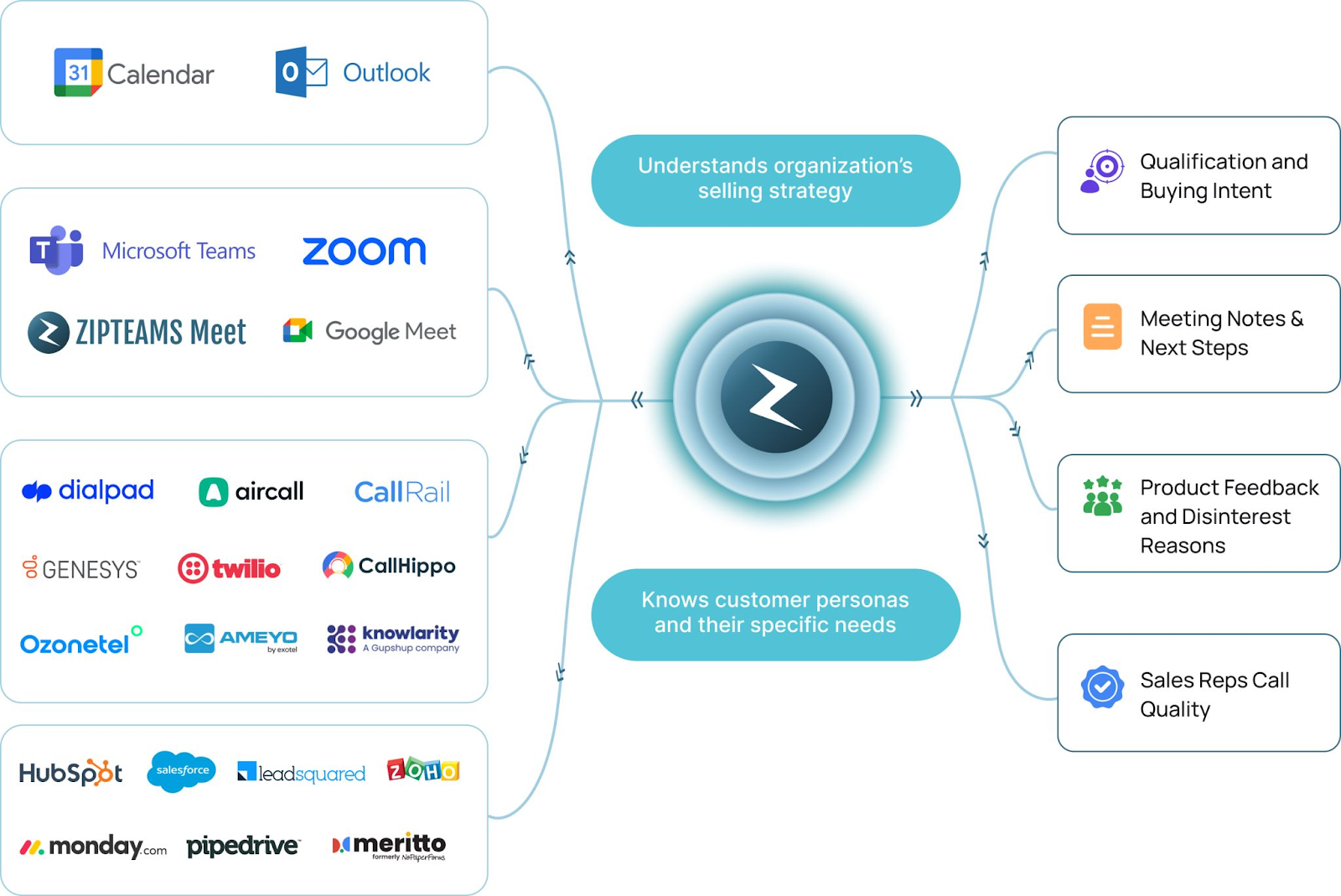
Zipteams’ AI-powered CRM Tools for B2B
Zipteams is making significant strides in AI-powered tools for B2B CRMs, focusing particularly on inside sales and lead conversion for the B2B sector. Zipteam’s AI-powered sales acceleration app integrates seamlessly with CRM systems, enabling sales teams to enhance efficiency and conversion rates through intelligent automation.
A key offering from Zipteams is their smart meeting rooms, which provide sales teams with real-time, AI-driven insights during customer interactions. These insights help sales reps understand customer intent, offer personalised responses, and streamline decision-making processes during meetings.
These AI-powered features empower businesses to scale their operations while maintaining a high level of personalised customer interaction, making Zipteams an integral part of modern B2B CRM strategies.
Zipteams offers a comprehensive solution with its AI-powered sales acceleration app, designed to optimise lead conversion and inside sales. Learn more about how Zipteams can transform your sales processes and enhance your CRM capabilities by exploring Zipteams’ solutions.

